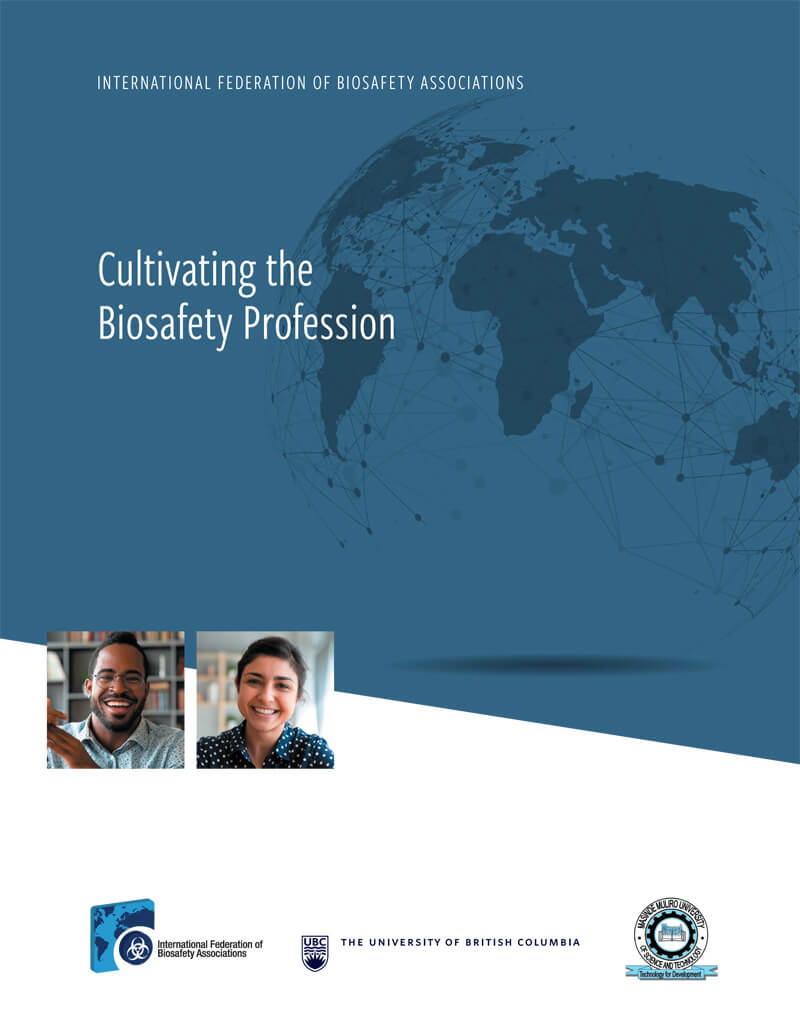The COVID-19 pandemic has placed a significant demand on the biosafety and biosecurity profession and many countries face an overall shortage of these specialized individuals. Working on the frontlines, and often behind the scenes, the profession remains largely unknown to students interested in pursuing a career in sciences who are steered toward more visible career paths.
To address this need, the IFBA is placing a priority on formalizing biosafety and biosecurity as a career path within the higher education university system in selected universities around the globe. The IFBA’s Biosafety Profession Technical Committee is collaborating with Kenya’s Masinde Muliro University of Science and Technology (MMUST) to build upon their biosafety and biosecurity course curriculum and pilot an undergraduate degree program in biosafety and biosecurity. Additional project participants include the University of British Columbia and representatives from the IFBA’s Member Biosafety Associations in Kenya and Tanzania. The experiences and lessons learned at MMUST will be shared with the international biosafety and biosecurity community for further implementation in universities globally.
Click here to learn more about the initiative.

